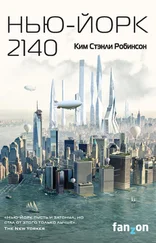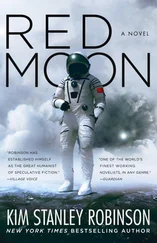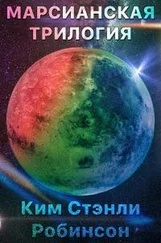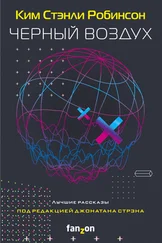Kim Stanley Robinson
PACIFIC EDGE
Despair could never touch a morning like this.
The air was cool, and smelled of sage. It had the clarity that comes to southern California only after a Santa Ana wind has blown all haze and history out to sea—air like telescopic glass, so that the snowtopped San Gabriels seemed near enough to touch, though they were forty miles away. The flanks of the blue foothills revealed the etching of every ravine, and beneath the foothills, stretching to the sea, the broad coastal plain seemed nothing but treetops: groves of orange, avocado, lemon, olive; windbreaks of eucalyptus and palm; ornamentals of a thousand different varieties, both natural and genetically engineered. It was as if the whole plain were a garden run riot, with the dawn sun flushing the landscape every shade of green.
Overlooking all this was a man, walking down a hillside trail, stopping occasionally to take in the view. He had a loose gangly walk, and often skipped from one step to the next, as if playing a game. He was thirty-two but he looked like a boy, let loose in the hills with an eternal day before him.
He wore khaki work pants, a tank-top shirt, and filthy tennis shoes. His hands were large, scabbed and scarred; his arms were long. From time to time he interrupted his ramble to grasp an invisible baseball bat and swing it before him in a sharp half swing, crying, “Boom!” Doves still involved in their dawn courtship scattered before these homers, and the man laughed and skipped down the trail. His neck was red, his skin freckled, his eyes sleepy, his hair straw-colored and poking out everywhere. He had a long face with high pronounced cheekbones, and pale blue eyes. Trying to walk and look at Catalina at the same time, he tripped and had to make a quick downhill run to recover his balance. “Whoah!” he said. “Man! What a day!”
* * *
He dropped down the hillside into El Modena. His friends trickled out of the hills in ones and twos, on foot or bicycle, to converge at a torn-up intersection. They took up pick or shovel, jumped into the rough holes and went to work. Dirt flew into hoppers, picks hit stones with a clink clink clink, voices chattered with the week’s gossip.
They were tearing out the street. It had been a large intersection: four-lane asphalt streets, white concrete curbs, big asphalt parking lots and gas stations on the corners, shopping centers behind. Now the buildings were gone and most of the asphalt too, hauled away to refineries in Long Beach; and they dug deeper.
His friends greeted him.
“Hey, Kevin, look what I found.”
“Hi, Doris. Looks like a traffic light box.”
“We already found one of those.”
Kevin squatted by the box, checked it out. “Now we’ve got two. They probably left it down here when they installed a new one.”
“What a waste.”
From another crater Gabriela groaned. “No! No! Telephone lines, power cables, gas mains, PVC tubing, the traffic light network—and now another gas station tank!”
“Look, here’s a buncha crushed beer cans,” Hank said. “At least they did some things right.”
* * *
As they dug they teased Kevin about that night’s town council meeting, Kevin’s first as a council member. “I still don’t know how you let yourself get talked into it,” Gabriela said. She worked construction with Kevin and Hank; young, tough and wild, she had a mouth, and often gave Kevin a hard time.
“They told me it would be fun.”
Everyone laughed.
“They told him it would be fun! Here’s a man who’s been to hundreds of council meetings, but when Jean Aureliano tells him they’re fun, Kevin Claiborne says, ‘Oh, yeah, I guess they are!’”
“Well, maybe they will be.”
They laughed again. Kevin just kept wielding his pick, grinning an embarrassed grin.
“They won’t be,” Doris said. She was the other Green on the council. Having served two terms she would be something like Kevin’s advisor, a task she didn’t appear to relish. They were housemates, and old friends, so she knew what she was getting into. She said to Gabriela, “Jean chose Kevin because she wanted somebody popular.”
“That doesn’t explain Kevin agreeing to it!”
Hank said, “The tree growing fastest is the one they cut first.”
Gabriela laughed. “Try making sense, Hank, okay?”
* * *
The air warmed as the morning passed. They ran into a third traffic light box, and Doris scowled. “People were so wasteful.”
Hank said, “Every culture is as wasteful as it can afford to be.”
“Nah. It’s just lousy values.”
“What about the Scots?” Kevin asked. “People say they were really thrifty.”
“But they were poor,” Hank said. “They couldn’t afford not to be thrifty. It proves my point.”
Doris threw dirt into a hopper. “Thrift is a value independent of circumstances.”
“You can see why they might leave stuff down here,” Kevin said, tapping at the traffic boxes. “It’s a bitch to tear up these streets, and with all the cars.”
Doris shook her short black hair. “You’re getting it backwards, Kev, just like Hank. It’s the values you have that drive your actions, and not the reverse. If they had cared enough they would have cleared all this shit out of here and used it, just like us.”
“I guess.”
“It’s like pedaling a bike. Values are the downstroke, actions are the upstroke. And it’s the downstroke that moves things along.”
“Well,” Kevin said, wiping sweat from his brow and thinking about it. “If you’ve got toeclips on, you can get quite a bit of power on your upstroke. At least I do.”
Gabriela glanced quickly at Hank. “Power on your upstroke, Kev? Really?”
“Yeah, you pull up on the toeclips. Don’t you get some thrust that way?”
“Shit yeah, Kev, I get a lot of power on my upstroke.”
“About how much would you say you get?” Hank asked.
Kevin said, “Well, when I’m clipped in tight I think I must get twenty percent or so.”
Gabriela broke into wild cackles. “Ah, ha ha HA! This, ha!—this is the mind about to join the town council! I can’t wait! I can’t wait to see him get into some heavy debate with Alfredo! Fucking toeclips —he’ll be talking TOECLIPS!”
“Well,” Kevin said stubbornly, “don’t you get power on your upstroke?”
“But twenty percent?” Hank asked, interested now. “Is that all the time, or just when you’re resting your quads?”
Doris and Gabriela groaned. The two men fell into a technical discussion of the issue.
Gabriela said, “Kevin gets into it with Alfredo, he’ll say toeclips! He’ll say, ‘Watch out, Fredo, or I’ll poison your blood!’”
Doris chuckled, and from the depths of his discourse Kevin frowned.
* * *
Gabriela was referring to an incident from Kevin’s grade school days, when he had been assigned with some others to debate the proposition, “The pen is mightier than the sword.” Kevin had had to start the debate by arguing in favor of the proposition, and he had stood at the head of the class, blushing hot red, twisting his hands, rocking back and forth, biting his lips, blowing out every circuit—until finally he said, blinking doubtfully, “Well—if you had just the pen—and if you stuck someone—they might get blood poisoning from the ink!”
Heads to the desks, minutes of helpless howling, Mr. Freeman wiping the tears from his eyes—people falling out of their chairs! No one had ever forgotten it. In fact it sometimes seemed to Kevin that everyone he had ever known had been in that classroom that day, even people like Hank, who was ten years older than him, or Gabriela, who was ten years younger. Everybody! But it was just a story people told.
Читать дальше
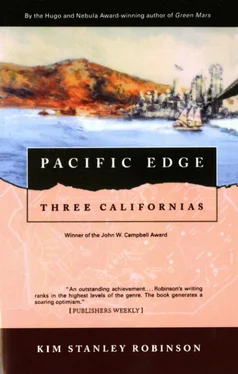

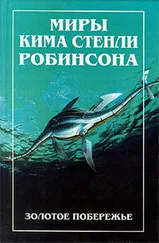
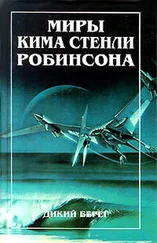

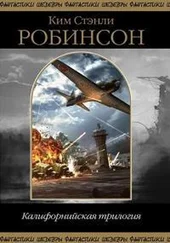
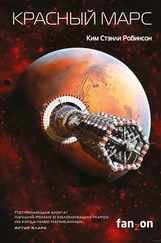

![Ким Робинсон - Годы риса и соли [litres]](/books/394367/kim-robinson-gody-risa-i-soli-litres-thumb.webp)
